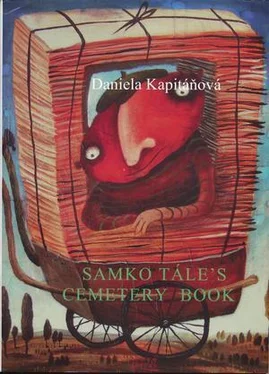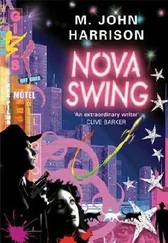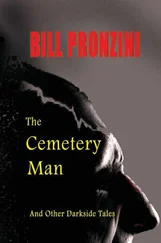And what’s also very important is that I’m a proper road user which means that I can’t go round walking with people just like that because I’m a proper road user and I have to watch my step very carefully and due to that I had a rear-view mirror fitted on my handcart.
Once there was this man in Komárno whose name was Marián Merďoch and he was a policeman and he said that I had to have a hooter on my handcart, too Like the one people have in their cars for hooting. A hooter. So I asked Szálássi Jr to fit a hooter on my handcart but he just laughed and didn’t want to do it, but I told him to, so he did. So now when I’m out and about with my handcart, I can go around hooting because I’m a road user and it’s the law to hoot regarding being careful. I have to press a button on the handle but it’s not the button that’s broken now, so my hooter isn’t broken. It runs on batteries and they need to be changed because they run out. They run out due to hooting regarding being careful.
Szállási Jr said that he could fit my handcart with a hooter that hooted a tune just like the one Ján Boš-Mojš sings when he says his name. But I didn’t want that because I have nothing to do with Ján Boš-Mojš except that my handcart is in his workshop now and if I started hooting the same tune people might wonder why.
I might wonder why, too.
And this man Marián Merďoch, the one who was a policeman and told me to get a hooter regarding being careful, he had a sister whose name was Lívia and she was a teacher regarding school children at school, and once on May Day she got so drunk outside the House of Czechoslovak-Soviet Friendship that she went off and did it with two men at the same time. You know what I mean. Sexual things. And she did it right by the Funfair, so the schoolchildren saw her and this is what they shouted at her:
‘Proletarian greetings, Comrade Teacher!’
But she didn’t notice due to being drunk. Then one of the men who worked at the Funfair and had done time in jail telephoned Marián Merďoch the policeman, and told him what his sister was doing with two men at the same time, and Marián Merďoch came in his police car and put Lívia in the police car and drove her home. And then he put her on the ground in their front garden next to the well and threw some water on her and then he took off his belts and beat her until she woke up. He beat her with two belts at the same time.
When she woke up, she tried to crawl back into the house because people were looking over the fence but Merďoch didn’t care because he was a policeman. And every time she fainted he pumped some more water on her and kept on beating her with the two belts.
Lívia Merďochová was wearing a Young Pioneer’s outfit with a Young Pioneer’s Scarf and when it got soaked with water the colour started running and her white Young Pioneer’s shirt turned all red from the colour that ran off her red Young Pioneer’s Scarf.
When he was done, Marián Merďoch left her in the front garden and went back on duty.
And the other people went home saying that this was something Lívia Merďochová would never forget.
I said so, too.
Maybe this really was something Lívia Merďochová never forgot but nobody could tell because after she recovered from all her fainting she stuttered so badly that she never managed to say a whole word for the rest of her life because all she could say was the beginning of a word.
And after that she never married, so she lived with her brother and she couldn’t be a teacher regarding children either, due to the stutter. She was very modest and very hard-working and she never went out except to exhibitions sometimes because after all this happened to her she took up embroidery and her embroideries were so beautiful they were shown at embroidery exhibitions.
And people said that nobody in Komárno made embroideries as beautiful as Lívia Merďochová.
I said so, too.
One of her embroideries was shown as far as Canada and also on TV.
Lívia Merďochová’s eyes were purple like nobody else’s in the world. They were totally purple. Like the colour purple.
Every evening she used to go for a walk with her brother. When he was on duty she didn’t go for a walk.
Anyway.
The only thing I don’t get is why the colour of her Young Pioneer’s Scarf ran so much because the colour of my Young Pioneer’s Scarf never ran. But then again, mine wasn’t properly red, it was sort of orange. But even if I left it to soak for two hours the colour never ran, not a bit.
My Young Pioneer’s Scarf was very beautiful and very good.
Anyway.
Once I saw a film from America on TV and in this film there were all sorts of American soldiers and even gangsters wearing Young Pioneers’ Scarves and I got very outraged when I saw that Americans were allowed to wear Young Pioneers’ Scarves, too There was even a black man wearing a Young Pioneer’s Scarf and that made me really very outraged.
Black people shouldn’t be allowed to wear Young Pioneers’ Scarves. That sort of thing is out of the question.
When I saw Darinka Gunárová’s husband, the black man, he wasn’t wearing a Young Pioneer’s Scarf and that relieved me very much, but then again it was at a funeral and people wouldn’t normally wear Young Pioneers’ Scarves at funerals, so it goes without saying that he wasn’t wearing one either.
Darinka Gunárová got out of the car wearing a dress that was all black and on her head she wore a hat with a black curtain. Her husband the black man was wearing a black suit. Darinka went with him arm-in-arm which means they were walking arm-in-arm. That’s what Grandmummy used to say, arm-in-arm. Darinka went into the mortuary arm-in-arm. I stayed outside because I was just a bystander and not a mourner.
When Alf Névéry died I was meant to be only a bystander, too but Alf Névéry was all alone regarding his divorce and nobody would have been a mourner, so Ivana went and stood in front and she dragged me along and made me stand in front too as if I was a mourner.
I hate it when Ivana drags me. I want her to stop dragging me.
But that time I didn’t know what to do so I went and stood behind the coffin even though I wasn’t a mourner at all. Neither was Ivana but that’s what she’s like, always pushing herself everywhere.
Otherwise there were all sorts of people from Bratislava at Alf Névéry’s funeral because he was very well-known, even though I don’t really know people from Bratislava because I only know people from Komárno.
Because Bratislava is a long way away.
Actually, it was quite handy to be standing behind the coffin because that way I could have a good look at all these people because they were standing on the other side facing us.
Ivana wore dark glasses, because that’s what she’s like.
Another person I saw at the funeral was the fat slob Manica. I hate him because he was the first person to shout at me like this:
‘Everybody thinks
Samko Tále stinks.’
And then I started shouting at him like this:
‘Manica the slob
Couldn’t find his knob.’
That made everyone laugh and Manica was embarrassed. Serves him right, that fat slob Manica.
I don’t know what he was doing at Alf Névéry’s funeral and I’ll never know because I won’t ever ask him. I’m not asking that fat slob Manica anything and he can go to Alf Névéry’s funeral every day for all I care, that fat slob Manica.
He was Darinka Gunárová’s first husband and they got married when they were sixteen years old, because Manica was our classmate too, but that was before he became a fat slob. Now he’s very fat. He’s so fat that the lowest of his chins rests on his tie.
I haven’t got fat at all because I have a very healthy life of style.
Читать дальше









